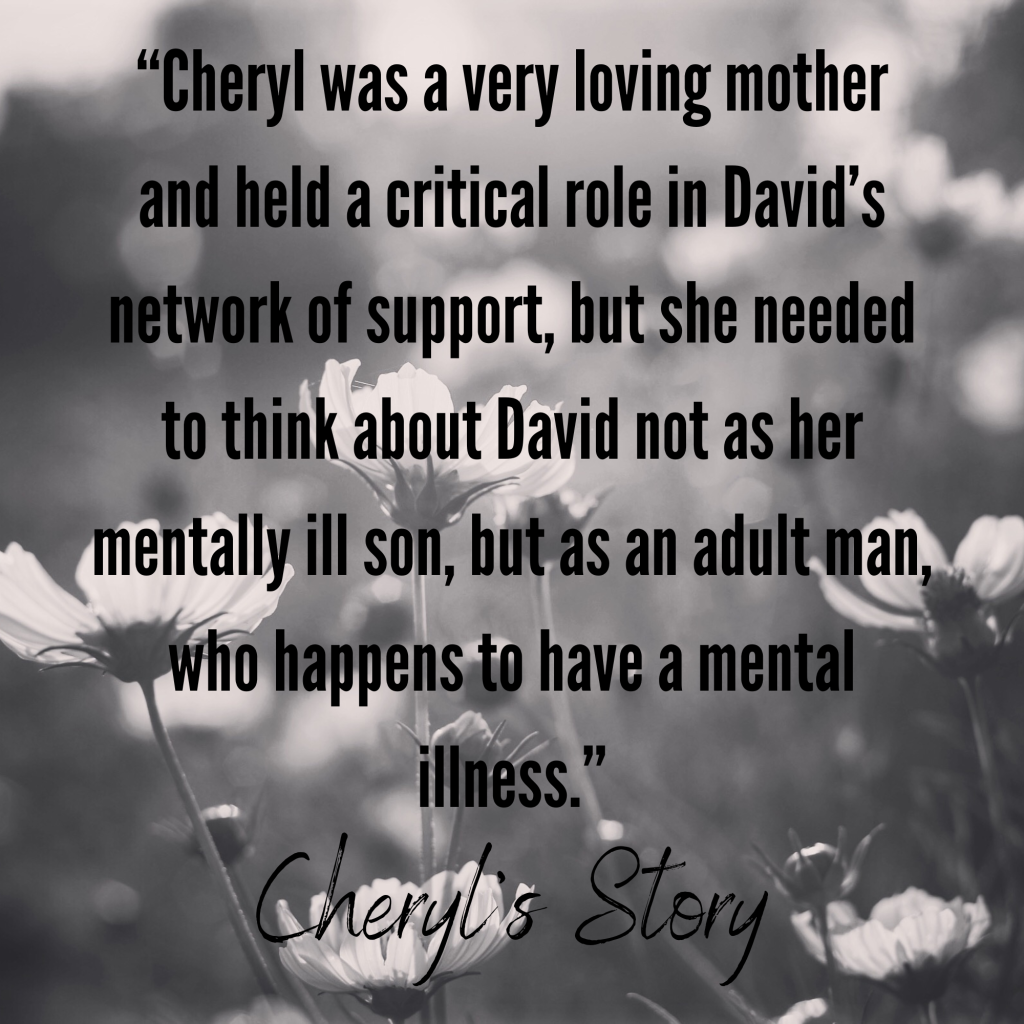
Cheryl has been a strong, caring, and loving advocate for her son, David, for almost 20 years. As with many people diagnosed with schizoaffective disorder, David experiences a number of ups and downs, however, an effective treatment regimen seemed to be in place. The positive symptoms, the voices and the delusions, were well controlled, but the negative manifestations of the condition remained. David was moving more and more into his own world, withdrawing physically and emotionally from friends and family. When he did connect with others, he was always angry. This was very hard to see in a son who had shown so much capacity for enjoyment.
Then, when David was in his mid-30s, he got on a Community Alternatives for Disabled Individuals (CADI) Waiver and moved into a corporate adult foster care home, located near the family home in rural Minnesota. David lived with three other men and a nice social connection began to take hold. When David left his new home to go to the family home for a special event or a holiday, he missed his roommates. This was nice for Cheryl to hear, as she wanted David to have connections to peers.
David seemed to be making progress, but Cheryl was not happy with everything in his house. David was lying around in his room and avoiding physical activities. He was eating unhealthy foods and putting on pounds. Cheryl decided to step in and take action. She contacted David’s house and complained that they were allowing him to stay in his room too much and not controlling what he ate. David perceived Cheryl’s action as interference in his life. He was in his 30s and had been establishing connections to the adults in his home. He found it very embarrassing to have his mother calling his house and complaining about the people working and living there. David knew that he should be more active and avoid second helpings, but being out of shape was not as big of a problem in his mind as the loss of his identity as an adult who does not need his mother to take care of him. David’s response was to refuse to take her calls. He was no longer willing to go home on special events or holidays.
Cheryl called Mental Health Minnesota and spoke with an advocate. The advocate recognized that Cheryl was a very loving mother and held a critical role in David’s network of support, but she needed to think about David not as her mentally ill son, but as an adult man, who happens to have a mental illness. When a caregiver focuses on the disability, they may overlook the person’s need to participate in life the way everyone around them does. Cheryl recognized the positive developments in David’s life. She was able to sit back and think about how she would have felt if her mother called someone – an employer, a neighbor, a friend – and told them how to meet her needs when she was in her 30s. While her son has a disability, he is an intelligent adult man and he does not want his mother running his life.
Cheryl stepped back and gave David space. She did not tell David what he had to do, but asked him if he was concerned about the weight he was gaining. David acknowledged he was concerned, but that it was not so easy to do more and eat less. Cheryl and David agreed to work together to accomplish David’s weight-loss goal. David will be the decision maker, but he is happy to have his mother as a consultant.
